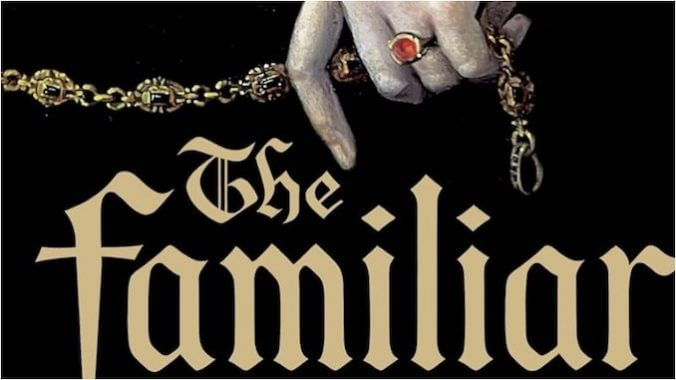Leigh Bardugo Effortlessly Steps Into a New Genre with Historical Fantasy The Familiar

Popular fantasy author Leigh Bardugo is primarily known for her Grishaverse series, high fantasy YA novels about a magical subclass who can manipulate matter at its most fundamental levels. Full of high-stakes politics, sprawling worldbuilding, and swoony romance, Bardugo’s Grisha books—the Shadow and Bone trilogy, followed by the Six of Crows and King of Scars duologies—have played a foundational role in the rise of YA fantasy as a genre, spawning a Netflix adaptation, tie-in merch, and endless fanfiction (Darklina hive, rise!). But although Bardugo certainly could have spent her career churning out endless cookie-cutter Grisha sequels and done just fine, she’s instead chosen to steadily expand her horizons as a fantasy writer, launching an adult contemporary dark academia series and, now, dipping her toes into the world of historical fiction with her latest novel, The Familiar.
Her first standalone fantasy and her first historical novel, The Familiar is a rich and lyrical mix of genres and tropes. A tale set in 16th-century Madrid during the height of the Spanish Inquisition, it is one part political thriller, one part slow-burn romance, and one survival saga, with a dash of fairytale magic on top. A back-handed love letter to the power of language, the novel’s prose is lyrical and lovely, its story precisely plotted, and its characters richly and fully realized. This is not a book I suspect many of us would have expected Bardugo to write—the magical elements, while important, are not truly the story’s primary focus—but its absorbing mix of real-life history, complex female characters, entertaining wordplay, and generational resilience makes for a genuinely enchanting whole. Yes, it’s a quieter, more deliberate book than its author is normally known for, but it’s haunting in a way that will stay with you well after the last page.
The Familiar follows the story of Luzia Cotado, a scullion and housemaid who, like many marginalized people during the Inquisition, works hard to hide her Jewish heritage. She does this by staying silent, by playing dumb, and by letting everyone assume she is less than they are, so that they might not notice or ask too many questions about who she is or where she came from. But Luzia also has a particular gift: She can cast spells using “refranes,” a mix of Hebrew-Spanish proverbs passed down by the women in her family, which she occasionally uses to alleviate some of her more tedious household chores. These include fixing burnt bread, mending torn garments, and multiplying slim rations so that she and her fellow household workers can eat more substantial meals.
But when her ambitious mistress Valentina catches her using magic, she and her husband Marius enter her into a magical contest to find the king a new holy champion. Thrown under the protection of an even more ambitious Spanish noble and social climber, she’s forced to train with his right-hand man, Guillén Santángel, a supernatural servant who is the “familiar” of the book’s title. Hundreds of years old, he’s been tricked into trading his freedom and preternatural luck for an immortality he no longer particularly enjoys, but fears giving up. Tied to his master’s family, Santángel is initially skeptical of Luzia and her abilities, but as the events of the king’s tournament grow more challenging—-and the other competitors and politicians involved more treacherous—both begin to understand that they have only one another to rely on. The slow-burn attraction that develops between the two is deftly handled and immensely satisfying to watch unfold, as both learn complex lessons about trust, betrayal, belief, and love, all while fighting to stay alive—-and out of the hands of the Inquisition.
-

-

-

-

-

-

-

-

-

-

-

-

-

-

-

-

-

-

-

-

-

-

-

-

-

-

-

-

-

-

-

-

-

-

-

-

-

-

-

-








































